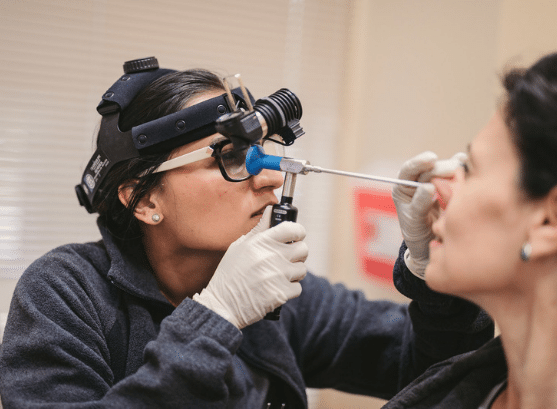
What are Nasal Polyps?
Before we get into your nasal polyp treatment options, it’s important to take a moment and look at what exactly this frustrating nasal condition is.
At their most basic, nasal polyps are what are known as benign growths that occur in your nasal cavity. Benign means they’re noncancerous. They usually appear along where the sinuses open into the nasal meatuses. This area is covered in protective mucous membranes, which can become inflamed easily (due to allergies, irritation, or a host of other factors). When it does, it can produce small lesions filled with fluid. These are polyps.
Nasal polyps are usually shaped like teardrops. They hang down from your nasal lining and can block the flow of air and fluid through your sinuses. They’re also incredibly common. The American Academy of Allergy, Asthma & Immunology estimates that around 181 million people worldwide are living with nasal polyps.
Common Causes
There isn’t a single factor that causes someone to develop nasal polyps. Rather, there are many potential causes and conditions. These include:
- Allergic Rhinitis – This is the medical term for inflammation of your nasal mucous membranes. It’s your body’s immune response to specific types of allergens (dust, pet dander, pollen, etc.).
- Chronic Sinus Infection – Because polyps form when your mucous membranes are inflamed, conditions like chronic sinusitis (sinus infection) can lead to them.
- Asthma – Asthma causes your body to produce excess mucus, which can become infected and cause polyps to form.
- Aspirin Sensitivity – A sensitivity or allergic reaction to aspirin and other nonsteroidal anti-inflammatory drugs (NSAIDs) can contribute to the development of polyps. Aspirin sensitivity is also known as Samter’s Triad and aspirin-exacerbated respiratory disease (AERD).
- Bronchiectasis – This is a condition where the airways between your nasal cavity and lungs (called the bronchi) become infected and inflamed. You’re then unable to clear mucus as easily, which can lead to it becoming infected and the eventual development of polyps.
- Cystic Fibrosis – Nasal polyps are common in people who also have cystic fibrosis. It’s thought that as many as 67 percent of all people suffering from CF will develop polyps at some point.
- Allergic Fungal Sinusitis (AFS) – This is a type of sinusitis caused by fungus.
- Genetics – Although the science behind genetics and nasal polyps isn’t well understood, there is evidence which links polyps to certain genes.
Symptoms
Nasal polyp symptoms are similar to symptoms associated with many other sinus conditions. They include:
- Postnasal drip
- Congestion
- Blocked nasal passages
- Sinus pressure and pain
- Headaches
- Loss of smell
- Nosebleeds
It’s important to note that nasal polyps may also present no symptoms at all. This is especially true while they’re developing and smaller. The larger a polyp, the more pronounced your symptoms are likely to be.
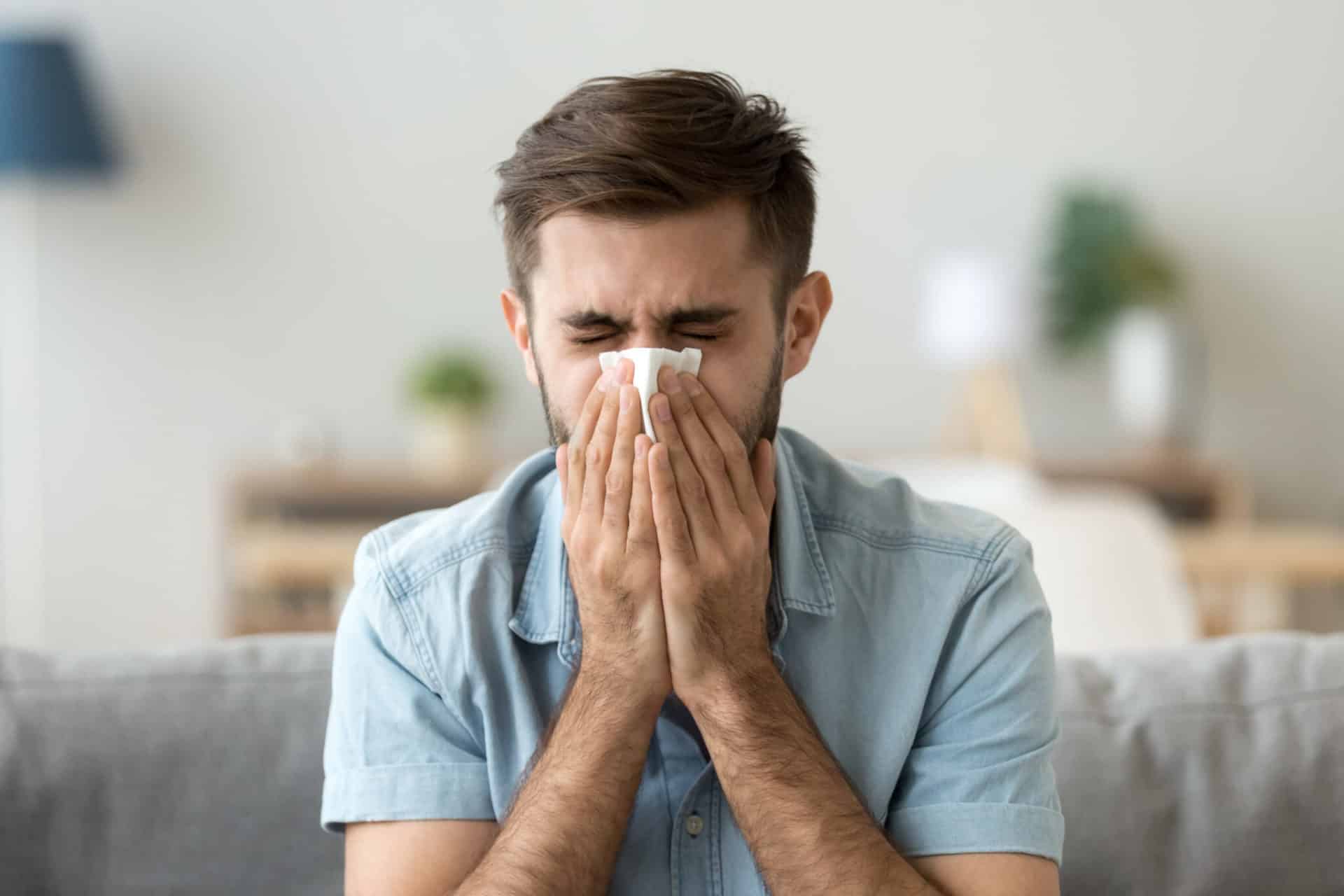
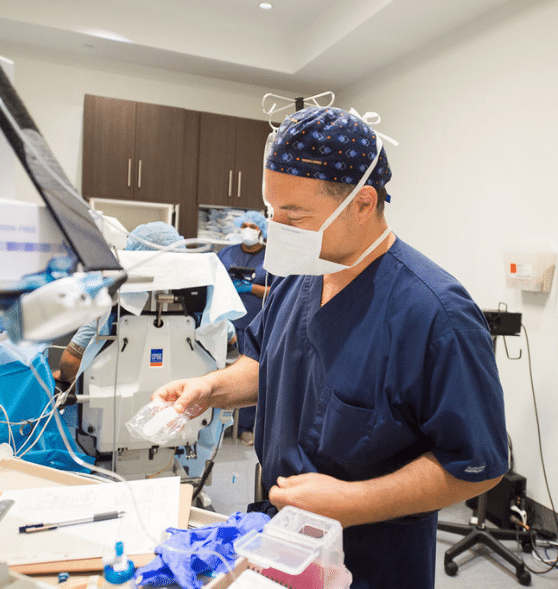
Nasal Polyps and Other Sinus Issues
Due to how nasal polyps are formed, they’re often seen alongside other nasal and sinus conditions. This is known as comorbidity. Due to this, it’s important to always seek medical care, even if you’re not currently experiencing any discomfort.
Common comorbid sinus issues include those mentioned above and others, including:
- Snoring – because nasal polyps can cause blockage in your nasal cavity, many people will breathe through their mouths while sleeping. This can lead to snoring
- Obstructive Sleep Apnea (OSA) – research has found a link between OSA and nasal cavity blockage like polyps
- Chronic Rhinosinusitis with Nasal Polyps (CRSwNP) – this is the medical term for the combination of persistent sinusitis with the presence of nasal polyps
- Churg-Strauss Syndrome – also known as eosinophilic granulomatosis, this is a rare blood disease. It’s characterized by inflammation in your blood vessels, particularly white blood vessels, and consists of three stages. The first stage includes asthma, allergic rhinitis, and sinusitis, which are thought to cause nasal polyps as well
- Vitamin D Deficiency – scientists and researchers are studying the link between deficiency of vitamin D3 and the development of polyps
Treating Nasal Polyps
Now that we know the causes, comorbid disorders, and symptoms of nasal polyps, it’s time to turn our attention to how they’re treated. First, we’ll look at how Dr. Mandel and the team at Florida Sinus & Snoring Specialists diagnose polyps.
Diagnosing
A thorough diagnostic process is the first step toward effective and lasting treatment. This is as true for nasal polyps as it is for any other sinus disorder. So, how do we identify polyps at Florida Sinus & Snoring Specialists? We use a mix of diagnostic tools, including:
- CT Scan
- Nasal Endoscopy
- Allergy Testing (in some cases)
CT scans help Dr. Mandel get a bird’s eye view of your entire nasal cavity, including sinuses which may be producing polyps. They’re especially helpful for finding polyps along the ethmoid sinus, which is located towards the back of your nasal cavity.
Nasal endoscopies are performed by inserting a thin tube, known as an endoscope, into your nasal cavity. It has a camera and light attached to the base, which lets Dr. Mandel get a detailed, real-time view of your sinuses. He is able to see inflammation, infection, blockage, tissue damage, nasal polyps, and any other potential issues. Although it may sound uncomfortable, the nasal endoscopy process is minimally invasive.
Allergy testing isn’t so much used to help diagnose the presence of nasal polyps. Rather, it’s an ancillary process that determines specific allergies you may be experiencing. Remember, allergies can often play a large role in the development of polyps. Using a proprietary method of testing that combines skin prick tests and intradermal testing, Dr. Mandel can quickly and effectively determine your sensitivity to a wide range of allergens.
Treatment Options
Treating nasal polyps is much simpler than many people realize. Their symptoms can be effectively controlled with medication and minimally invasive nasal procedures. One such procedure includes the nasal polypectomy, which is designed to remove polyps with minimal discomfort and maximum efficacy.
Corticosteroids are usually the first line of defense against nasal polyps. These are medications that reduce inflammation, swelling, and can even shrink polyps. Corticosteroids typically come in a convenient nasal spray, though other delivery methods are available. Common corticosteroids include fluticasone, budesonide, mometasone, and others.
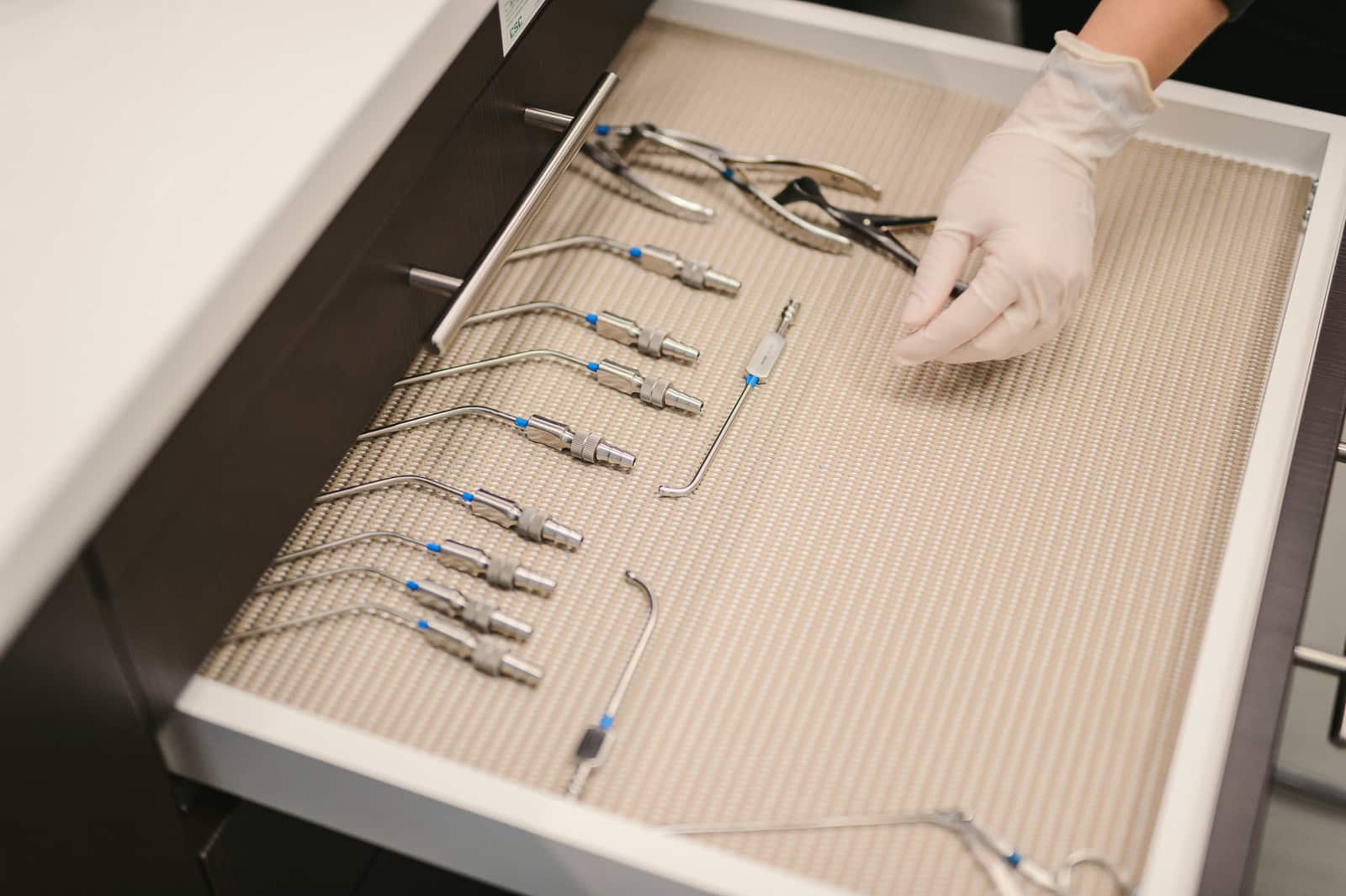
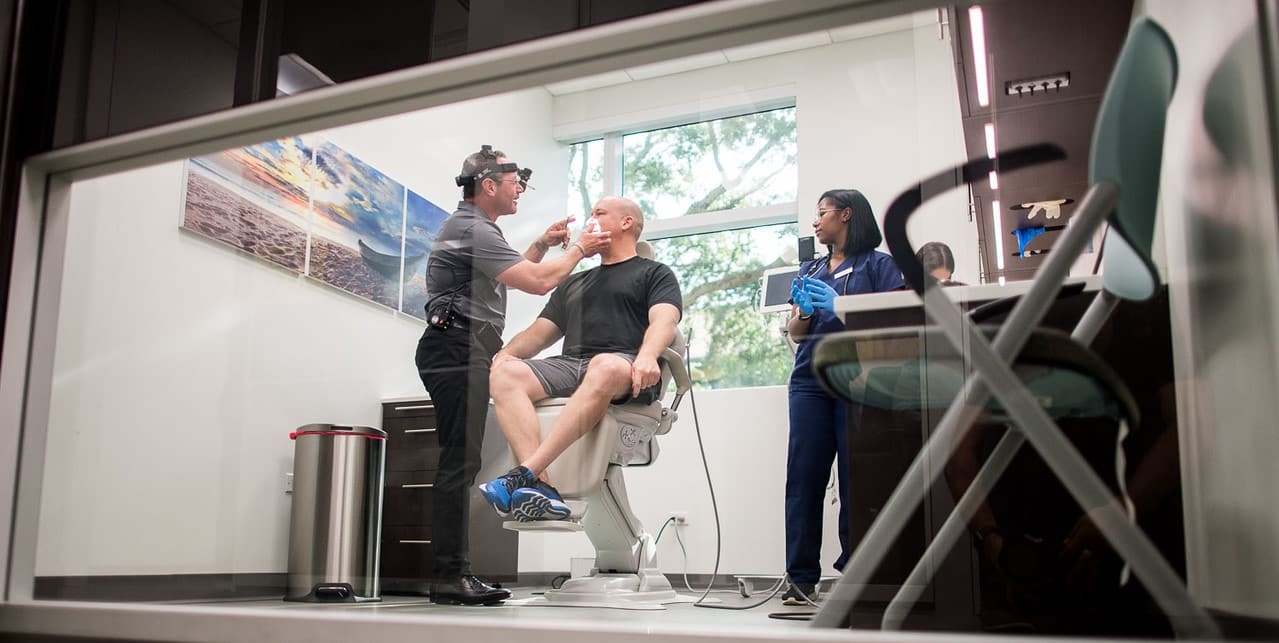
Minimally Invasive Nasal Procedures
While medications offer a great way to reduce many of the symptoms associated with nasal polyps, the most effective treatment option is undoubtedly a nasal polypectomy. This is a type of surgery that falls under the umbrella of minimally invasive nasal procedures.
Nasal polypectomies are quick, painless, and effective procedures. Dr. Mandel can perform them in as little as 30 minutes. They don’t require any incisions or complicated surgical techniques. Perhaps most importantly, they’re outpatient surgeries. This means you can go home the same day with minimal post-procedure discomfort and quick recovery time.
Start Living Polyp Free!
Are you ready to say goodbye to nasal polyps once and for all? Then it’s time you joined the thousands of patients who can breathe easier thanks to Dr. Mandel and Florida Sinus & Snoring Specialists!
Dr. Mandel has been recognized as a leader in otolaryngology for close to three decades. He’s Double-Board certified, has developed several uniquely effective procedures, and is one of the only rhinologists in South Florida. He took this dedication and talent and founded Florida Sinus & Snoring Specialists.
Conveniently located in both Plantation and Fort Lauderdale, we’re your solution to frustrating nasal polyps. Simply call us today at (954) 983-1211 or request an appointment online!
